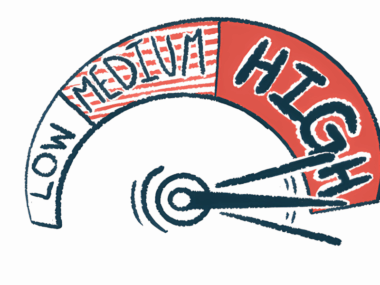Soliris biosimilar Epysqli now available in US for adults with gMG
Treatment also to be available to treat PNH, aHUS patients
Written by |

Epysqli (eculizumab-aagh), a biosimilar of Soliris (eculizumab), is now available in the U.S. to treat adults with generalized myasthenia gravis (gMG) who test positive for antibodies against acetylcholine receptors (AChRs), the most common type of MG-causing antibodies.
Besides myasthenia gravis (MG), Epysqli will also be available for people with atypical hemolytic uremic syndrome (aHUS) and paroxysmal nocturnal hemoglobinuria (PNH), two diseases for which Soliris is also approved.
Biosimilars are highly similar in terms of purity, safety, and efficacy to a brand-name biological medicine that serves as a reference product. They are akin to generics for traditional medicines and are typically marketed at a more affordable price than the reference product.
“Individuals living with rare diseases, including paroxysmal nocturnal hemoglobinuria, atypical hemolytic uremic syndrome and generalized myasthenia gravis, often have limited access to life-enhancing medicines. We are proud to launch Epysqli in the U.S. as a new, more affordable treatment option to help expand access to these underserved communities,” Thomas Rainey, senior vice president of U.S. biosimilars at Teva Pharmaceuticals, said in a joint company press release.
Teva will commercialize Epysqli in partnership with its developer, Samsung Bioepis. According to Teva, Epysqli will be available at a 30% lower price compared with Soliris, making it one of the most cost-saving Soliris biosimilars available in the U.S.
“The availability of Epysqli means that patients now have an additional treatment option available at a lower cost, with the proven quality, safety and efficacy comparable to the reference product,” said Linda MacDonald, executive vice president and head of global commercial division of Samsung Bioepis. “We will work closely with Teva to ensure access of this medicine for payers, healthcare professionals, and patients in the U.S.”
What is Epysqli andf how does it work?
Epysqli and Soliris both block the activity of the complement system, a part of the immune system believed to be involved in the autoimmune attacks that drive MG. They do so by binding to a complement protein called C5 and preventing it from being split into two components, a step that would normally lead to complement activation. Ultimately, this can help ease MG symptoms.
The U.S. Food and Drug Administration approved Epysqli as a biosimilar of Soliris last year, first for aHUS and PNH, and later for gMG. The approval was backed by data from a Phase 1 clinical trial (NCT03722329) in healthy volunteers that showed Epysqli and Soliris had a similar safety and pharmacological profile. It was also supported by findings from a Phase 3 trial (NCT04058158) involving people with PNH, another complement mediated-disease, where the two therapies were found to be therapeutically equivalent.
Like Soliris, Epysqli is administered into a vein as an infusion. The recommended dosing schedule in adults is identical to the brand-name medication and consists of administering it at 900 mg weekly for the first four weeks, then 1,200 mg in the fifth week and 1,200 mg every other week thereafter. Unlike Soliris, which is also approved for children with AChR-positive gMG as young as 6, Epysqli is only indicated for adults.
Like the brand-name medication, Epysqli’s prescribing information comes with a boxed warning for serious meningococcal infections. Complement inhibitors and products containing eculizumab, the active agent in Soliris and Epysqli, increase the risk of meningococcal infections, which can be life-threatening or fatal if not identified and treated promptly. Due to their increased risk, Epysqli is only available in the U.S. through a restricted access program, called Epysqli REMS.




Leave a comment
Fill in the required fields to post. Your email address will not be published.